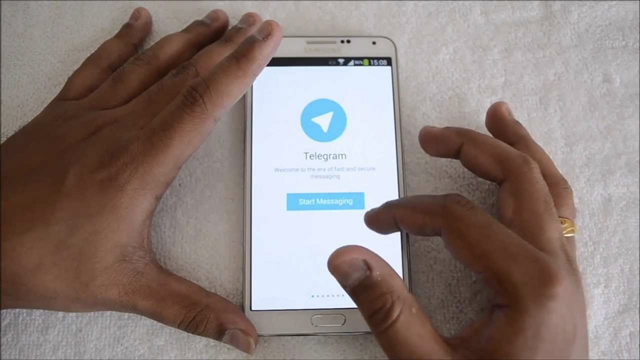Telegram Reveals Iranian Government’s Request to Spy on Its Citizens

Telegram, which unlike Twitter and Facebook is not filtered in Iran, has emerged as one of the leading social media services in Iran.
October 21, 2015— The CEO of the instant messaging service Telegram, Pavel Durov, announced in a tweet on October 20, 2015, that the Iranian government had asked the company to spy on its users in Iran. The development is a dramatic twist in a six-month struggle by Iranian authorities to monitor the popular mobile phone application in Iran.
Durov tweeted that when the company declined to provide the Iranian government with backdoor access to user data in Iran, they blocked their services.
“Iranian ministry of ICT demanded that @telegram provided them with spying and censorship tools. We ignored the demand, they blocked us,” Durov tweeted.
“Iran’s thirst to seize control over its citizens’ private communications, spy on them, and use online content to identify and prosecute any individual who departs from the official line should raise a red flag for all potential investors in Iran,” said Hadi Ghaemi, executive director of the International Campaign for Human Rights in Iran. “No company should be expected to compromise the privacy and security of its users in such an unlawful way, and undermine their own reputational integrity in the process.”
In response to a question by the Iranian Student News Agency (ISNA), Mohammadreza Farnaghizad, General Manager of Public Relations at the Ministry of Telecommunications, said on October 20, 2015, that Telegram had not been blocked. However, there were reports coming out of Iran that the service had been intermittently disrupted, and the Telegram CEO said in a tweet that the service had been completely blocked for two hours.
In September 2015, there was an outcry and flood of questions expressed on social media networks by Telegram users in Iran and around the world over Iranian officials’ remarks that the Iranian government hosted 30 percent of users’ data on servers inside the country. The claim was concerning, as hosting servers inside the country would allow state officials access to any content flowing across those servers and user information.
In response to the Campaign’s direct questions to Telegram regarding these claims via Twitter, the Telegram CEO unequivocally rejected such allegations.
Dozens of Iranian social network users languish in prisons under lengthy sentences for expressing their opinions on the Internet.
Telegram, which unlike Twitter and Facebook is not filtered in Iran, has emerged as one of the leading social media services in Iran, attracting conservative and reformist politicians, media, and the general public. Major publications inside and outside Iran have created channels on Telegram, which are followed by thousands of followers. Media outlets such as the BBC’s Persian Service and Voice of America, and even ultra conservative news outlets such as Tasnim News and Fars News Agency that are affiliated with Iran’s Revolutionary Guard Corps (IRGC) have established their own channels on Telegram to reach Iranian users. On October 7, 2015, the Iranian News Agency (IRNA) announced the launch of President Rouhani’s official Telegram channel.
On the same day of the spying revelation made by Telegram’s CEO, the Revolutionary Guards issued a communiqué calling on the Ministry of Communication to work with Telegram to address what it alleged was the “infiltration” of the service by anti-revolutionaries who use the service to broadcast their messages.
This view regarding the “enemy infiltration” of social media networks was expressed earlier by Iran’s leader, Ayatollah Khamenei, who believes the Internet is “used by the enemy to target Islamic thinking.” In September 2015, Khamenei consolidated all authority for Internet censorship and blocking policies in the hardline Supreme Cyberspace Council which he controls.
“Telegram has admirably stood up for freedom of expression and Internet freedom,” said Ghaemi. “This episode shows the need for all companies active in Iran to conduct their business with the utmost transparency.”






